Dec. 16, 2015
Thesaurus : Doctrine
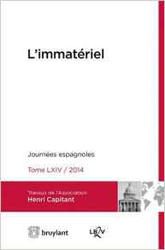
Full reference : Association Henri Capitant, L'immatériel, Journées espagnoles, t. LXIV/2014, Bruylant, 2015, 1130 p.
Read the synthesis report by Rémy Cabrillac.
See the general presentation by Matthias Lehmann on Contrat et immatériel
Dec. 16, 2015
Thesaurus : Doctrine
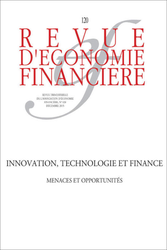
Référence générale : Verdier, M., Innovation, concurrence et réglementation pour la fourniture de services bancaires en ligne, in Revue d’Économie Financière, Innovation, technologie et finance. Menaces et opportunités, n°120, déc. 2015, p. 67-89.
Les étudiants de Sciences po peuvent lire l'article via le drive dans le dossier "MAFR - Régulation".
Il est remarquable que dans cet article le droit de la concurrence soit perçu et analysé que comme une "réglementation".
Dans cette perspective, il est posé que cette "réglementation" doit s'adapter car pour le développement de l'activité bancaire dans l'espace numérique les acteurs doivent coopérer, ce qui est contraire à la base de la "réglementation concurrentielle".
Pour que les opérateurs innovent, il faut donc mettre le cursus entre la concurrence et la coopération, à la fois dans les relations verticales et entre opérateurs installés et nouveaux entrants.
Nov. 25, 2015
Thesaurus : Textes
Full reference: Regulation (EU) 2015/2120 of the European Parliament and of the Council of 25 November 2015 laying down measures concerning open internet access and amending Directive 2002/22/EC on universal service and users’ rights relating to electronic communications networks and services and Regulation (EU) No 531/2012 on roaming on public mobile communications networks within the Union
Dec. 12, 2013
Thesaurus
June 14, 2013
Thesaurus : Doctrine
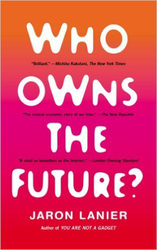
Référence complète : Lanier, J., Who Owns the Future ?, Simon & Schuster, USA, 2013, 367 p.
Lire les pages conclusives : "what is to be Remembered ?
Jan. 1, 2002
Thesaurus : Doctrine
► Référence complète : H. Klein, "ICANN et la gouvernance d'internet. La coordination technique comme levier d'une politique publique mondiale", LCN, 2002, vol. 3, n° 2, pp. 91-128
____
► Résumé de l'article :
____
🦉Cet article est accessible en texte intégral pour les personnes inscrites aux enseignements de la Professeure Marie-Anne Frison-Roche
________
Nov. 1, 2000
Publications
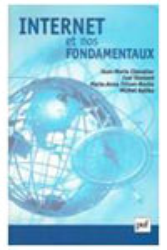
► Full Reference: J.-M. Chevalier, I. Ekeland, M.-A. Frison-Roche & M. Kalika, Internet et nos fondamentaux ("Internet and our Fondamentals"), PUF, 2000, 128 p.
____
► English general presentation of this book and its summary: The Internet creates an impression of extreme novelty. Indeed, the fundamentals, have changed, as much in economics, management as in law. e-management, e-commerce, e-finance: all disciplines must rebuild their rules, so that the behaviours of actors are in a new way framed.
The Internet is not just a new way of communicating. It introduces new behaviours, new rules, some say a new world, perhaps a new life for pioneers of a new kind. This impression of extreme newness is the sign of a revolution, because the facts about the Internet do not seem to be explainable by any previously established rule: the principles to which we must refer have changed, the fundamentals that enable us to translate the world into abstractions, to understand it and to dominate it, are in mutation.
How can we understand the Internet? Not necessarily by delving into its technical and everyday aspects, but by confronting it with the fundamentals of the various disciplines in order to measure which key notions the Internet is abusing, which it is destroying and which it is imposing. What remains of our ways of thinking and practising science, law, economics and management? What are these disciplines built on? How can we understand them and bring them together again, under the impact of the Internet? The ambition of this book is to shed light on these new fundamentals, to tackle the conceptual revolution that Internet technology is bringing with it.
____
Content :
Introduction, p.7
Internet et la recherche en sciences exactes et naturelles ("The Internet and research in the natural sciences"), p.19
Les bouleversements du droit par Internet ("The upheaval of law caused by the Internet"), p. 37
Les fondements des sciences économiques interpellés par Internent ("The foundations of economics challenged by the Internet"), p.77
Internet et les sciences de gestion : l’émergence du e-management ("The Internet and management sciences: the emergence of e-management"), p. 103
________
June 10, 1998
Thesaurus : Doctrine
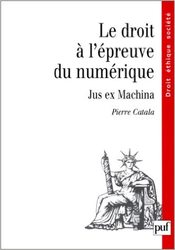
► Référence complète : P. Catala, Le droit à l'épreuve du numérique. Jus ex Machina, coll. "Droit, Éthique, Société", PUF, Paris, 1998, 345 p.
____
► Présentation de l'ouvrage : Pierre Catala est le professeur de droit qui, sans doute le premier, a compris que le numérique allait tout changer. Y compris le Droit.
Et il a décidé d'y contribuer. Avant tout les autres. Il a créé un centre de recherches. Il a créé une banque de données juridiques.
Il a pensé ce qu'est l'information, sa "propriété" et son "marché".
Avant tous les autres.
____
____
► Consulter les ouvrages publiés dans la collection📚Droit, Ethique, Société, créée et dirigée par Marie-Anne Frison-Roche et François Terré.
____
► Lire les articles de Pierre Catala :
________
May 16, 1996
Thesaurus : Doctrine
Référence complète : Johnson, D. & Post, D., Law and Borders: The Rise of Law in Cyberspace, Stanford Law Review, vol.48, 1996, p.1367.
____